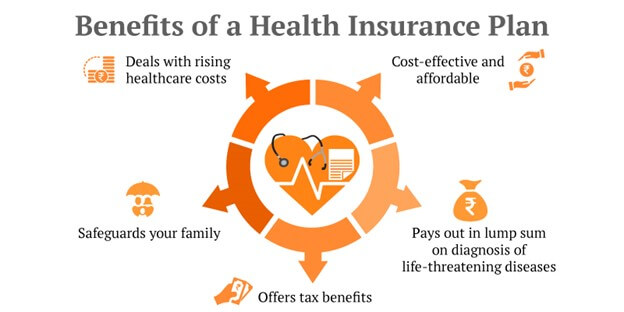Benefits of Health Care
Health care plays a crucial role in our lives, providing essential services to improve and maintain our well-being. In this article, we will explore the various benefits of health care and how it positively impacts individuals and society as a whole.
Improved Access to Medical Services
One of the primary benefits of health care is the improved access to medical services it offers. With a well-functioning healthcare system, individuals can easily access doctors, specialists, and medical facilities whenever they need them. This accessibility ensures that people receive timely and appropriate care, leading to better health outcomes.
Promotion of Preventive Care
Health care also promotes preventive care, which focuses on preventing diseases and illnesses before they occur or worsen. Regular check-ups, vaccinations, and screenings are essential components of preventive care. By emphasizing prevention, health care helps individuals stay healthier, detect potential health issues early, and reduce the need for more extensive and costly treatments.
Management of Chronic Conditions
Another significant benefit of health care is the management of chronic conditions. Many individuals live with chronic diseases such as diabetes, heart disease, or asthma. Through regular medical check-ups, medication management, and lifestyle guidance, health care professionals help patients effectively manage their conditions, improving their quality of life and reducing the risk of complications.
Emergency Medical Services
In times of emergencies, health care plays a critical role in saving lives. Emergency medical services provided by hospitals and healthcare professionals ensure that individuals receive immediate care during accidents, injuries, or sudden severe illnesses. The prompt response and specialized care provided in emergencies can make a significant difference in the outcome and recovery of patients.
Health Education and Promotion
Healthcare institutions also play a vital role in educating individuals about health-related matters. They provide valuable information on nutrition, exercise, disease prevention, and overall well-being. By promoting health education, healthcare professionals empower individuals to make informed decisions about their health, leading to healthier lifestyles and improved overall health.
Reduced Financial Burden
Access to affordable health care can significantly reduce the financial burden on individuals and families. Healthcare systems that provide comprehensive coverage and affordable insurance options ensure that people can seek necessary medical care without worrying about exorbitant costs. This financial security allows individuals to prioritize their health and well-being without facing crippling expenses.
Enhanced Productivity
When individuals have access to quality health care, they can maintain their health and well-being, leading to enhanced productivity. Healthy individuals are more likely to be physically and mentally fit, enabling them to perform better at work, school, or other daily activities. By investing in health care, societies can foster a productive workforce and contribute to overall economic growth.

In conclusion, health care provides numerous benefits that positively impact individuals and society. From improved access to medical services and promotion of preventive care to the management of chronic conditions and emergency medical services, health care plays a vital role in ensuring the well-being of individuals. By recognizing the importance of health care and investing in its development, we can create healthier, happier, and more prosperous communities.
Frequently Asked Questions
1. What are the benefits of having health care?
Health care provides access to necessary medical services, preventive care, and treatments to maintain and improve overall health. It offers financial protection against high medical expenses and ensures timely medical attention when needed.
2. How does health care benefit individuals?
Health care helps individuals by promoting early detection and treatment of illnesses, reducing the risk of complications, improving quality of life, and increasing life expectancy. It also provides access to specialists, medications, and healthcare professionals for personalized care.
3. Are there any economic benefits of health care?
Yes, health care has significant economic benefits. It contributes to a healthier workforce, reducing absenteeism and increasing productivity. It also helps in reducing healthcare costs in the long run by focusing on preventive care and early intervention.
4. Can health care benefit society as a whole?
Absolutely. Health care benefits society by promoting public health, reducing the spread of infectious diseases, and improving overall community well-being. It ensures that everyone has access to essential medical services, regardless of their financial situation.
5. What are the advantages of preventive health care?
Preventive health care focuses on early detection and prevention of diseases. It helps in identifying potential health risks, reducing the need for expensive treatments, and improving health outcomes. Regular check-ups, vaccinations, and screenings are all part of preventive care.
6. How does health care contribute to a better quality of life?
Health care plays a vital role in improving the quality of life. It ensures timely diagnosis and treatment of medical conditions, reduces pain and discomfort, and promotes overall well-being. It also provides access to rehabilitation services and mental health support.
7. Can health care help in managing chronic conditions?
Yes, health care is crucial in managing chronic conditions. It provides ongoing medical support, access to specialists, and necessary medications to control symptoms, prevent complications, and improve the quality of life for individuals living with chronic illnesses.
8. Are there any long-term benefits of health care?
Absolutely. Health care offers long-term benefits by focusing on preventive care, early intervention, and ongoing management of medical conditions. It helps in reducing healthcare costs, improving overall health outcomes, and increasing life expectancy.
9. How does health care promote mental well-being?
Health care promotes mental well-being by providing access to mental health professionals, counseling services, and psychiatric medications. It helps in early detection and treatment of mental health disorders, reducing stigma, and improving overall psychological well-being.
10. Can health care benefit vulnerable populations?
Yes, health care is essential for vulnerable populations, including low-income individuals, children, the elderly, and people with disabilities. It ensures equal access to medical services, preventive care, and necessary treatments, reducing health disparities and improving overall health outcomes.




